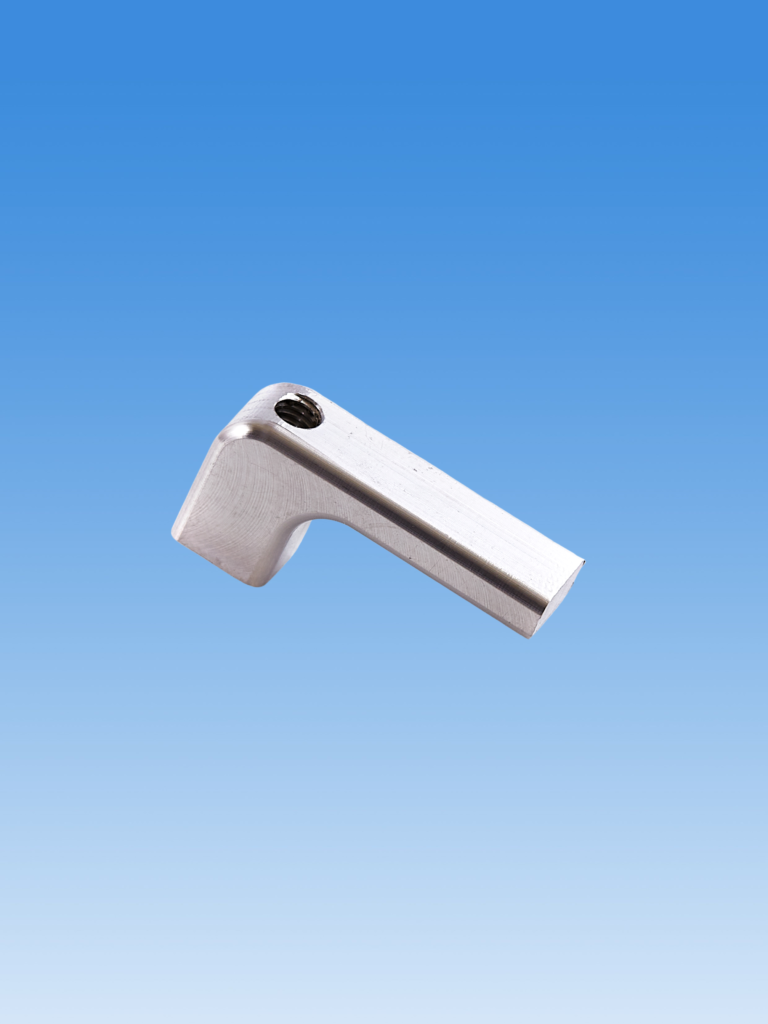Precision fasteners are essential components in industrial production, widely used in high-precision fields such as automotive, aerospace, and electronics. Due to their critical role in various equipment and systems, ensuring the quality of precision fasteners is a vital part of the manufacturing process. To guarantee that fasteners meet stringent technical standards, various testing equipment and tools are required throughout their production, following a systematic testing process. This article will introduce the common testing equipment, tools, and processes used for precision fasteners.
Ⅰ. Common Testing Equipment and Tools for Precision Fasteners
To ensure the quality of precision fasteners, manufacturers rely on a range of advanced equipment and tools. These devices address different testing requirements to ensure that each product meets the necessary standards.
- Coordinate Measuring Machine (CMM)
A Coordinate Measuring Machine (CMM) is a widely used tool for measuring the shape and dimensions of precision fasteners. It works by using a probe attached to a mechanical arm to measure various points on a part, and then calculating the dimensions and geometry of the fastener, including outer diameter, inner diameter, length, threads, and more. CMM is ideal for high-precision dimension measurement and is capable of quickly and accurately detecting shape and size errors in fasteners.
- Microscope
A microscope is used to examine surface defects in precision fasteners, such as scratches, cracks, pores, and other imperfections. By magnifying the fastener's surface, it allows for the inspection of fine surface details. Common types include metallurgical microscopes, electron microscopes, and digital microscopes, all of which provide high magnification for identifying minute surface defects that might otherwise go unnoticed.
- Hardness Tester
Hardness is a crucial material property, especially for precision fasteners, as it directly impacts wear resistance and strength. A hardness tester measures a material's ability to resist deformation when a hard indenter is pressed into its surface. Common methods include Rockwell, Vickers, and Brinell hardness tests. Different types of hardness testers are used depending on the material, ensuring that fasteners have the required strength and durability.
- Thread Measuring Instrument
Threads are a critical component of precision fasteners, and the accuracy of the threads directly influences the fastening performance. A thread measuring instrument is used to measure various thread parameters, such as external and internal diameter, pitch, and thread angle. This tool ensures that the threads on fasteners meet precise standards, preventing issues like poor connections or thread damage during use.
- Tensile Testing Machine
A tensile testing machine is used to determine the tensile strength and breaking point of precision fasteners. By applying increasing force until the fastener breaks, the machine measures the fastener's tensile strength, elongation, and failure behavior. This test is essential for verifying the fastener's reliability under extreme conditions, particularly in industries such as aerospace and automotive, where high strength and durability are critical.
- Profile Projector
A profile projector is a tool used to measure and inspect the shape and dimensions of precision fasteners. It projects a magnified image of the fastener onto a screen, allowing operators to view and compare its dimensions with design standards. The profile projector is particularly useful for checking complex shapes and ensuring that fasteners meet precise dimensional specifications.
- X-ray Inspection Machine
X-ray inspection is widely used to detect internal defects in precision fasteners, such as voids, inclusions, and cracks. This non-destructive testing method allows for the analysis of the internal structure of a fastener, ensuring that any internal flaws that may affect performance are identified and addressed before the fastener is used.
Ⅱ. Precision Fastener Testing Process
The testing process for precision fasteners typically involves several stages, including raw material inspection, in-process quality control, finished product testing, and final inspection. Each stage plays a crucial role in ensuring that the fastener meets stringent quality standards.
- Raw Material Inspection
Quality begins with raw materials, as the material properties directly impact the performance of the final product. Upon arrival at the production facility, raw materials undergo a series of tests, including chemical composition analysis, mechanical property testing, and hardness checks. Common methods used include spectrometry, hardness testing, and tensile testing, all aimed at ensuring that the material meets the required specifications.
- In-Process Quality Control
During the manufacturing process, various tests are performed to monitor the quality of the fasteners. Initially, the molds and machines used for production are inspected to ensure they meet the required tolerances. As the fasteners are produced, CMM and profile projectors are used periodically to check dimensions and shapes. Additionally, microscopes are used to examine the surface for any defects such as scratches or cracks that may have been introduced during processing.
- Finished Product Testing
Once the fasteners are produced, they undergo comprehensive testing to verify that they meet all quality requirements. The final product is measured using CMM and thread measuring instruments to ensure dimensional accuracy and proper thread specifications. Hardness testers and tensile testing machines are used to assess material properties, ensuring that the fasteners are strong and durable enough for their intended use. For threaded fasteners, the accuracy and integrity of the threads are verified to prevent failure during assembly.
- Final Inspection and Packaging
Before the fasteners are packaged and shipped, a final inspection is conducted. This step ensures that each fastener meets the required quality standards in terms of appearance and dimensions. The surface quality is inspected with a microscope, and any potential defects are identified. Tensile tests and hardness tests are conducted as necessary to verify the mechanical properties. Once the fasteners pass the final inspection, they are packaged with proper labeling, including any relevant certifications, and prepared for shipment.
Ⅲ. Conclusion
The testing of precision fasteners is a complex, multi-stage process that involves various advanced testing equipment and tools. From raw material inspection to final product testing, each stage plays a critical role in ensuring that fasteners meet high-quality standards. Manufacturers must continually enhance their testing technologies and processes to ensure that every fastener meets customer expectations and performs reliably in demanding applications. As technology continues to evolve, future testing equipment will become increasingly automated and intelligent, further improving testing efficiency and accuracy. Ultimately, these advancements will help manufacturers produce even higher-quality precision fasteners that meet the ever-increasing demands of industries worldwide.


